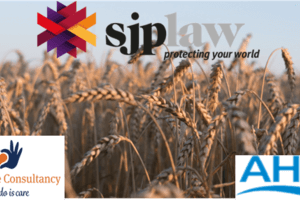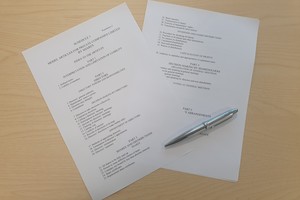- If the employee self-isolates (because they are displaying symptoms of coronavirus) - they are off sick ** and should be paid SSP*;
- If you force isolation on them, then they are not sick nor are they on holiday - you have to pay them full pay (but see 3 below);
- However, if they are displaying symptoms of Covid 19 or have been to an area of high risk as listed by the Government (so should be self isolating) then you do have a right to send them home and pay SSP*;
- However, if they turn up to work and are clearly ill then you can send them home as sick and pay SSP*;
- If the employee can work from home, then allow them to do so and pay as normal. You do still have an obligation to provide a safe working environment even if they are working at home so it depends upon what the role is as to whether this is a good idea or not. If they are at home and working they are entitled to full pay.
- If they are well and been to an area listed by the Government as a risk area then they should self isolate and they should take advice from the NHS. They are paid as per 1 above.
- If they are well and have not been to one of those areas, they should come into work as normal if work is available, the business is open and it is not possible to work from home. If they do not come to work then they are taking unauthorised absence and do not have to be paid (they are not sick or on holiday). Unless they are self isolating in which case 1 above applies.
- If they have a new persistent cough, and/or high temperature or told by the NHS to isolate then they should self isolate . They are then paid as per 1 above.
- If they have to stay at home to look after children or family then they are looking after dependents and usually they are not be entitled to pay. (However, please check your individual policies as to whether you pay for dependents leave of not).
- If they are not displaying symptoms of Covid 19 but have a respiratory symptom (cold) then they may go off sick and would be paid SSP.
- If they are ordered to self isolate or quarantined then SSP* is payable.
- If the employee is just anxious and worried about attending work. Then discuss it with them and you can agree, to let them take holiday, flexible working or unpaid leave. If the anxiety gets so bad they cannot work then they are off sick and SSP* is payable.
- If an employee living alone shows symptoms of Covid-19, they should self-isolate for 7 days. They will be paid as 1 above.
- Any individual living in a house with someone who shows symptoms of Covid-19, they will be asked to self-isolate for 14 days from the moment the first individual to become ill shows symptoms. They will be paid as 1 above.
- If an employee has to stay at home to look after a dependent who is displaying symptoms of Covid-19, but they themselves are not sick, they would receive SSP* because they are having to self isolate. If they are staying at home to look after dependents as schools/childcare have closed, then please see 9.
- If the employed is a shielded worker (who has been sent a text or message in the past few days from the NHS or Government) and they have distanced themselves or you have told them to go home and they can and do work from home then they get full pay. If they cannot work from home or there is no work for them, then they can be furloughed (see 18 below).
- If the employee is a vulnerable person (those the Government asked them to stay at home because of various illnesses - diabetes, heart conditions etc.) and they have distanced themselves or you have told them to go home and they can and do work from home then they get full pay. If they cannot work from home or there is no work for them, then they can be furloughed (see 18 below).
- Furloughed workers
- a. Furloughed worker is an employee who has no work to do because of the effect of coronavirus on the business they work for, who you send home, do not give any work for them to do but keep on the books as an employee. Roughly, a worker who you may have let go because of a lack of work because of coronavirus would fit the criteria.
- b. The Government have said they will reimburse 80% of furloughed worker’s wage cost, up to a cap of £2,500 per month. The grants can be backdated to 1 March 2020 and will initially be available for the first 3 months with a view to extend the scheme if necessary.
- c. As an employer, you will need to identify the affected employees as ‘furloughed workers’. The employees will need to be notified by the employer of this change and be asked to agree to it. We recommend that this is done in writing. We can supply you with a draft furlough notice letter. Depending on the employee’s contract, paying anything less than 100% of the employee’s wages may have to be subject to negotiation. Please call us with any queries on employment contracts and amounts of pay if you think furlough is an option you may want to take.
- d. The notified employee will then go onto furlough. The employer will continue to pay the employee’s salary (or a percentage if the contract allows or is negotiated) and the employer can recover 80% of the employee’s salary from HMRC. Whilst the employee is “on furlough” they cannot do any work for their employer in the time that they are a ‘furlough worker’.
- e. Confirm the employees’ new status in writing. This is an eligibility requirement for accessing the subsidy, and a record must be kept of this correspondence Ideally, the employer should advise how long it expects furlough leave to continue, however, this may be difficult in the current climate. Employers may wish to put employees on furlough leave for an initial period, subject to review.
- f. Submit information to HMRC about the employees that have been furloughed and their earnings through the new online portal, expected to be operational by the end of April 2020
Please see the attached document for more guidance on the Coronavirus Job Retention Scheme and the guidance on the claim for wages and costs as of Friday 27 March 2020.
* Whether you should pay SSP or an enhanced rate for your staff when they are off sick depends upon what it says in their contract of employment. Please check each employees contract to ensure you are paying them correctly. SSP should be recoverable but to date it is not clear how this process works. SSP is payable from the first day the employee is off sick.
** Legally, medical evidence is not required for the first 7 days of sickness absence. After 7 days, employers may use their discretion around medical evidence if an employee is staying at home.
For businesses who have employees who are absent from work as they have been advised to stay at home as either; they are unwell themselves, or live with someone who is, discretion should be used around the need for medical evidence.
If evidence is required to cover self-isolation or household isolation after the first 7 days of absence - employees can get an isolation note from NHS 111 online or from the NHS website, please see the links below.


















